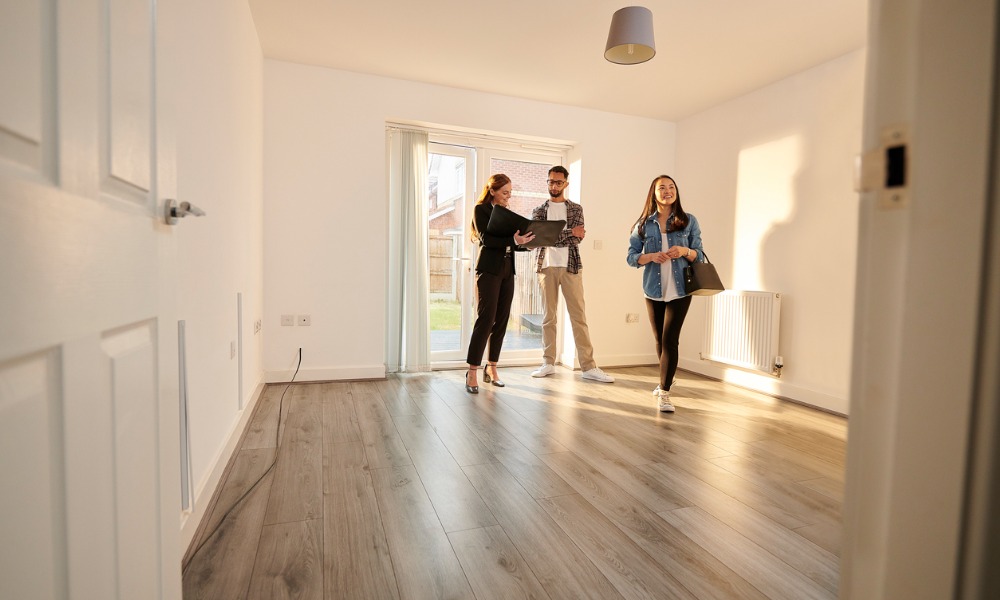Buying a rental property can be lucrative but remember that it will require a lot of your time and money. Here is everything you need to know

Are you thinking about buying rental property?
Purchasing an investment property for renting and acting as a landlord can be a great way to earn income. However, investing in real estate to rent also comes with a serious commitment—of both time and money. You have to choose the right property, prep the unit, and secure reliable tenants. Not to mention the ongoing maintenance that is often required.
But if you know what to expect—and weigh the pros and the cons—you will be in a better position to succeed.
In this article, we will look at what to consider before buying rental property. We’ll outline the risks and look at some rules of thumb that can help you plan. Here is everything you need to know about buying rental property.
Buying rental property: the basics
Buying rental property—like any form of real estate investment—requires knowledge in a few key areas. You need to understand leasing, mortgage loans, tenant and landlord relationships, and property management. While it can be lucrative, buying rental property also comes with challenges.
In this section, we’re going to look at the basics of buying rental property. This will help you get started.
Location matters
Potential investment opportunities include cities or locales where the population is growing or where a revitalization plan is underway. You are also more likely to access a larger pool of renters in neighborhoods with low crime rates, easy access to public transportation, and a growing job market.
When buying rental property, look for a location with a good school district, low property taxes, and plenty of amenities. These may include trails, parks, coffee shops, restaurants, and shopping.
Check out online real estate property sites (think Zillow.com) when conducting your preliminary research. These sites usually include current investment property values and home rental rates.
Financing
When buying rental property, the home loan is similar to a primary residence mortgage but with important differences.
For starters, there are higher rates of default on loans for rental properties. This means there is added risk for lenders. The lenders alleviate that risk by charging higher interest rates on rental properties. However, as an investor, you can either go with a traditional mortgage or apply for a VA loan or an FHA loan.
Underwriting standards are also usually stricter for rental property applicants. If you are investing in a rental property, you will likely need a higher credit score, minimum payment, and DTI threshold. Here is a rundown of typical financing for rental properties:
- Credit score: You will need to have a minimum credit score of 620. For better rates and terms, you will need a credit score of 740.
- Debt-to-income ratio (DTI): This is the percentage of your monthly income that goes toward paying off debt. Mortgage lenders let you count up to 75% of your expected rental income toward your DTI.
- Down payment: While a down payment of 0% to 3% might be okay for conventional mortgages on a primary residence, you may need to plan on 15% to 20% for investment real estate. Savings: You should have enough money saved to make three to six months of mortgage payments. This should include principal, insurance, taxes, and interest.
Rental earnings
Operating costs on new rental properties typically range between 35%-80% of your gross operating income. For instance, if you charge $1,500 in rent each month, and expenses are $600 per month, that is 40% for operating expenses.
Most real estate investors use the 50% rule: if the monthly rent is $2,000, you can expect to pay up to $1,000 in total expenses.
What is the 2% rule for investment property?
The 2% rule measures the price of an investment property against the gross income it will generate. When choosing an investment property, the monthly rent must be equal to or greater than 2% of the purchase price.
Calculating the 2% rule is easy. All you have to do is multiply the purchase price of the rental property by 2% (or x 0.02). The result is what should be the minimum that you charge in rent each month.
Here is an example of the 2% rule for a rental property with a purchase price of $150,000:
$150,000 x 0.02 = $3,000
Using the 2% rule, the minimum amount you would charge your tenants in monthly rent payments would be $3,000.
The 2% rule is a more extreme version of the commonly used 1% rule. However, both use the same idea.
For the 1% rule, multiply the purchase price of the rental property by 1% (or x 0.01). That means that on a property of $150,000, you would charge a minimum of $1,500 in rent each month.
To make it even easier, you can simply move the comma in the purchase price of the rental property to the left by two spaces.
Is buying rental property a good way to make money?
Yes. Buying rental property can be a good way to make money. Not only can you generate steady, ongoing income, but if you hold onto the rental property for many years, it will likely appreciate nicely in value over time.
However—and this is a big however—investing in real estate is not like investing in assets such as stocks. Real estate requires a lot of money and a lot of time. It is very hands on. You should also know that there are notable risks involved. This is not to talk you out of buying rental property; this is to ensure you are prepared if you do.
With that in mind, let’s look at some points to consider before buying rental property.
- Know the costs
- Get a good real estate lawyer
- Educate yourself on possible rental restrictions
- Beware of surprise costs
- Learn what goes into being a landlord
- Hiring a property manager

When buying rental property, make sure you work with a good real estate lawyer.
1. Know the costs
It is important to buy rental property that you can easily afford. This includes knowing how much it costs to close on a rental property. In other words, it will take more than simply making a down payment to finalize the purchase of a rental property.
Closing costs can be significant—or at least a shock if you let them creep up on you. Therefore, ensure you are not maxing out your budget just to make a sizeable down payment.
2. Get a good real estate lawyer
When buying rental property, you will want to have a good real estate lawyer. This goes for any professional who will be advising you throughout the process.
Good real estate lawyers will do their due diligence and explain to you what they are doing and why. This could even include explaining what a standard contract or arrangement is.
3. Educate yourself on possible rental restrictions
Renting out property on a short-term basis can be different from renting out property over a longer term.
Restrictions that come with renting out property over a shorter term tend to come at the local level. For properties that are part of a homeowners’ association (HOA), that can be at the HOA level. Therefore, educate yourself on any possible rental restrictions before buying rental property.
4. Beware of surprise costs
Surprise costs can include maintenance, repairs, and increasing property taxes. If your rental property is a condo, there will likely be additional fees. These may not be too high, but it is important to budget for them in advance.
The same is true for renting out remodeled or newly constructed buildings. These often get saddled with property taxes that can be higher than anticipated. The reason is it may take a few years for property taxes to catch up to the value of a property or building that has been renovated. Taxes can even double within the same year.
5. Learn what goes into being a landlord
A lot can go into being a landlord. It is not only about taking on the expense of maintaining the rental property. Being a landlord also means being always available to deal with tenant issues, whenever they arise. In other words, if something breaks, you must fix it immediately, regardless of the time of day—or night.
6. Hiring a property manager
Hiring a property manager for your rental property does not mean that you sit back, collect profit, and do nothing. Not all property managers are phenomenal. Property managers can go out of business or fail to provide your tenants with a high level of service.
Delegating everything to your property manager may mean compromising the value of your rental property investment.
However, there are benefits. Most property managers have access to vetted contractors who can help with any repairs. In other words, the property manager may not do everything. But their connections can be beneficial.
What is the biggest risk involved in owning rental property?
The biggest risk involved in owning a rental property is extended vacancies. Since it is essentially lost money, it represents a significant financial risk. If you fail to rent out your property consistently, you are still responsible for paying the property’s expenses. This remains true even if you are not generating income to offset those costs.
There are, however, other cons that come with owning rental property:
Property insurance
You must pay property insurance. A policy covers the property in case of certain events that damage the property.
If you want more extensive protection, you might also want to consider applying for landlord insurance. That will protect you if your tenant has an accident on the property.
Costs for insurance vary depending on the type of property, the location, and the number of units and tenants.
Maintenance costs
Maintenance costs include out-of-pocket expenses covering repairs and upkeep.
To help calculate maintenance costs in advance, you can use a square-footage model. Tally the total square footage of the property and assume that you will spend $1 for every square foot each year in repair and maintenance costs. If you are renting out a 1,000 sq. ft. apartment, for example, you can estimate paying about $1,000 in maintenance costs per year. While not necessarily definitive, it can act as a good guide.
When buying rental property, know what to expect
The key takeaway here is that buying rental property can be highly lucrative—and a great experience. However, it is important to be prepared before you start. Why? Because buying rental property, and becoming a landlord, can take up a lot of time and money. It is also important to be aware of any hidden costs and restrictions.
If you know these things ahead of time, and you’re prepared financially, you are setting yourself up for success.
To find out more about buying rental property, get in touch with one of the mortgage professionals we highlight in our Best in Mortgage section. Here you will find the top-performing mortgage professionals across the USA.
Did you find this information on buying rental property useful? Does it make you more likely or less likely to invest in rental property? Let us know in the comment section below.



